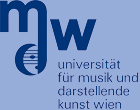List of Vienna Talk 2010 presenters

Amir, Noam
(P,O)Andermann, Martin
(P)Arzt, Andreas
(O)Bastos, Patricia Lopes
(P)Beauchamp, James Warren
(O,O)Bendl, Ingrid
(P)Bertsch, Matthias
(P)Bisesi, Erica Elisabetta
(O)Buen, Anders
(O)Campbell, Murray
(O)Cano, Estefania
(P)Carral, Sandra
(P)Carter, Stewart Arlen
(O)Chatziioannou, Vasileios
(P)Chick, John
(O)Curtit, Marthe
(O)Dalmont, Jean-Pierre
(O)Davidenkova, Ekaterina
(O)Demoucron, Matthias
(O)Doutaut, Vincent
(P)Dörfler, Monika
(O)Flossmann, Sebastian
(O)Fouilhe, Eric
(O)Fricke, Jobst P.
(O)Fritz, Claudia
(O)Gingras, Bruno
(O)Goebl, Werner
(P)Granzotto, Nicola
(P)Grosshauser, Tobias
(O)Guettler, Knut
(O)Hansen, Uwe J
(O)Kartofelev, Dmitri
(P)Kausel, Wilfried
(P)Kemp, Jonathan
(O,O)Klaus, Sabine Katharina
(O)Kostek, Bozena
(O)Lambrechts-Douillez, Jeannine
(O)Lohri, Angela
(P)Marchand, Sylvain
(O)Mayer, Alexander
(P)Moore, Thomas
(O,O)Morrison, Andrew
(O)Myers, Arnold
(O)Nederveen, Cornelis J
(O)Niedermayer, Bernhard
(O)Norman, Lisa
(O)Oehler, Michael
(O)Otcenasek, Zdenek
)Pyle, Robert W.
(O,O)Reuter, Christoph
(O)Richardson, Bernard
(P,O)Rose, Maria
(O)Rossing, Thomas D.
(O,O)Sanchez, Monica
(P)Schoonderwaldt, Erwin
(O)Sharp, David
(O)Siddiq, Sadjad
(P)Presentation type: Poster / Invited
Physical modelling of the Sitar
The acoustic properties of the sitar are studied with the aid of physical models. The non-linearity of the string movement, caused by the bridge acting as an obstacle to the vibrating string, is of special interest.
Different kinds of physical modelling techniques are investigated, each offering certain advantages and drawbacks. Several hypothesis concerning the non-linearity and the sound formation can be verified in the models proposed.
A mass-spring model gives acoustically satisfying results and sheds light on the interaction of string and bridge, while being very slow in calculation. The important role of dispersion for the sound of the sitar is demonstrated in a finite difference model and further studied in a waveguide model.
After discussing the difficulties of the implementation of the models, their results are compared to recordings of the instrument. The waveguide model is found to yield satisfying results while being very fast at the same time.

Skala, Jan
(P)Smith, Richard
(O)Sundberg, Johan
)Taylor, Crissman
(O)Tronchin, Lamberto
(O)Tsai, Pei Ju
(P)Vereecke, Hannes William
(P)Vergez, Christophe
(O)Widmer, Gerhard
(O)Worland, Randy
(O)Ziegenhals, Gunter
(O)van der Linden, Janet
(O)





